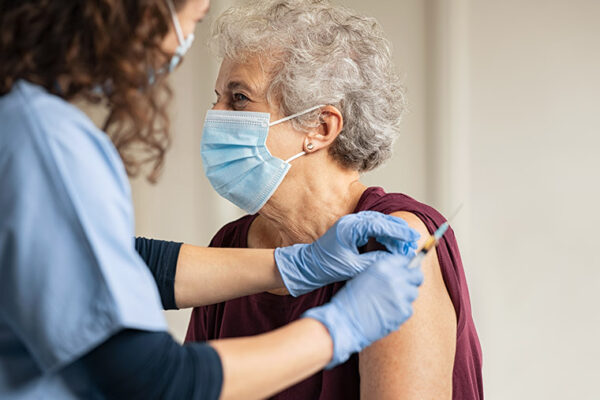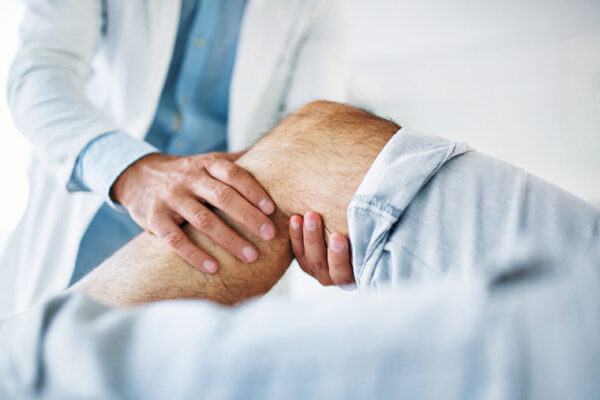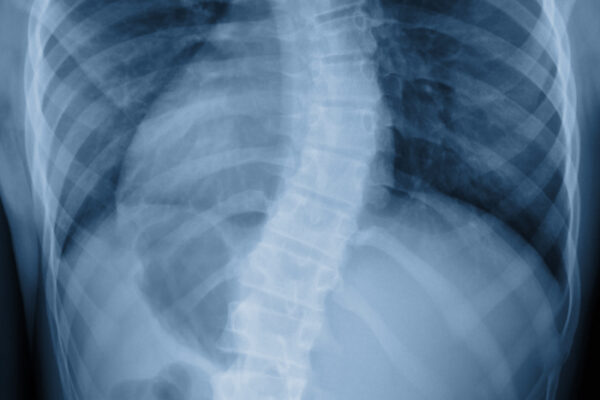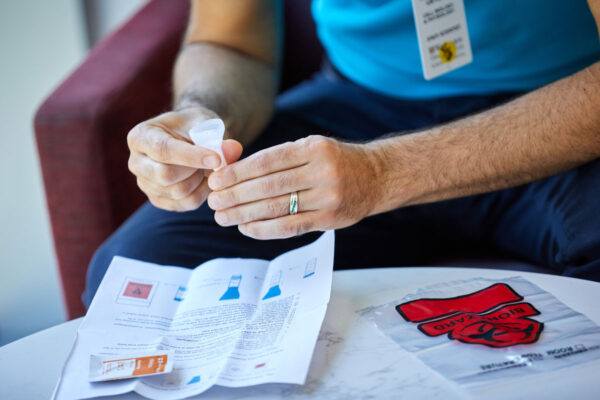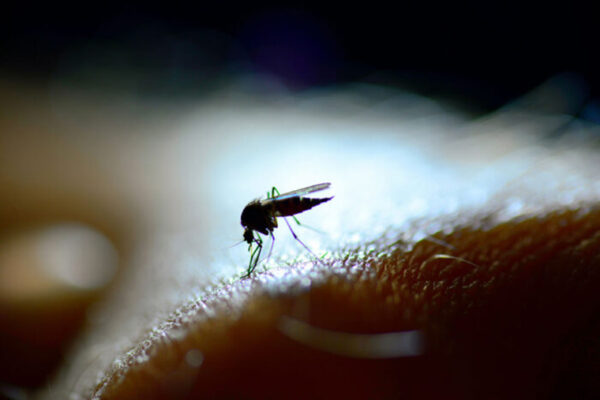Construction progresses on neuroscience research building
The School of Medicine’s eastern border will look strikingly different in 2023, when the 11-story neuroscience research building is complete. At this point, more than 106 drilled concrete piers have been poured, and the interior columns and floor in the basement’s western half are complete.
Building better vaccines for the elderly
Meredith Jackrel, in Arts & Sciences, studies protein misfolding and how it leads to disease. She is collaborating with Jai Rudra at the McKelvey School of Engineering to develop amyloid-inspired vaccine technologies specifically tailored for seniors. The approach could be relevant to COVID-19 as the elderly are particularly susceptible to its severe complications.
Gene that protects against osteoarthritis identified
Researchers at Washington University School of Medicine, working in mice, have found that a molecule previously linked to diabetes, cancer and muscle atrophy also seems to be involved in the development of osteoarthritis. It may offer a useful treatment target.
Severe scoliosis in African Americans focus of $3.2 million grant
Researchers at Washington University School of Medicine in St. Louis have received a five-year $3.2 million grant to study the genetic basis of the musculoskeletal disorder scoliosis, and particularly how it affects African Americans and other underrepresented minorities.
AAAS names 7 Washington University faculty as 2020 fellows
Seven faculty members at Washington University in St. Louis are among 489 new fellows selected by the American Association for the Advancement of Science (AAAS), the world’s largest general scientific society.
Stronger memories can help us make sense of future changes
Jeffrey Zacks’s latest research turns on its head some popular beliefs about memory, showing that a failed prediction isn’t simply a failure, but also a cue which can help people update their understanding — as long as they realize their prediction was wrong.
COVID-19 cases could nearly double before Biden takes office
The number of confirmed COVID-19 cases are likely to increase to 20 million by the end of January, nearly doubling the current level of 11.4 million cases, predicts a Washington University in St. Louis COVID-19 forecasting model.
Innovative training program boosts expertise in putting cancer research into practice
Washington University’s Mentored Training for Dissemination and Implementation Research in Cancer program, the first of its kind in cancer prevention and control, has resulted in an uptick in skills, grants, publications, networking and even some practice changes.
Young people with disabilities focus of COVID-19 testing grant
School of Medicine researchers have received a grant allowing them to offer 50,000 saliva tests for the SARS-CoV-2 virus to students, teachers and staff in the six special education schools operated by the Special School District of St. Louis County.
Lethal brain infections in mice thwarted by decoy molecule
School of Medicine scientists have identified a molecule that protects mice from brain infections caused by Venezuelan equine encephalitis virus, a mosquito-borne virus notorious for causing fast-spreading, deadly outbreaks in Mexico, Central America and northern South America.
Older Stories

